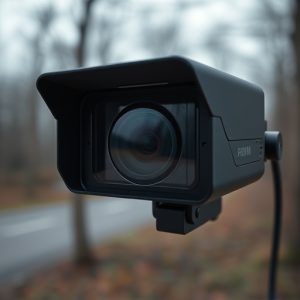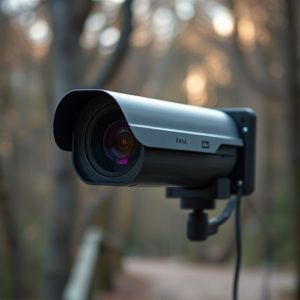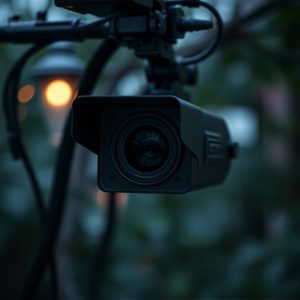Uncovering Hidden Cameras: Advanced Scanning Techniques and Legal Guidelines
Hidden surveillance cameras pose a significant challenge for renters, with devices ranging from smal…….
Hidden surveillance cameras pose a significant challenge for renters, with devices ranging from small to advanced micro-sized, making them hard to detect. To safeguard privacy, renters can employ traditional methods like visual inspections, infrared thermometers, and metal detectors. Modern technologies, including algorithms and machine learning, enhance detection capabilities, while Discrete Security Cameras designed for renters offer unassuming monitoring. Ethical deployment demands understanding local regulations, transparency (e.g., clear camera notices), and building trust between tenants and landlords to avoid legal issues.
Hidden recording devices pose a significant threat to privacy, especially for renters considering their limited control over shared spaces. This article delves into innovative signal scanning methods to detect these discreet security cameras, ranging from traditional tactics like manual inspections and infrared technology to advanced solutions leveraging artificial intelligence and radio frequency analysis. We also explore legal boundaries and ethical implications surrounding hidden camera detection, offering insights crucial for both individuals and businesses looking to protect privacy in today’s digital age.
- Understanding Hidden Recording Devices and Their Scanning Challenges
- Traditional Methods for Detecting Discreet Cameras
- Advanced Technologies in Signal Scanning: Enhancing Detection
- Legal Considerations and Ethical Implications of Hidden Camera Detection
Understanding Hidden Recording Devices and Their Scanning Challenges
Hidden recording devices, also known as surveillance cameras that are secretly installed to capture footage without consent, pose a significant challenge in today’s world. Their discrete nature makes them hard to detect, especially for renters who may not be aware of their surroundings being monitored. These devices can take various forms, from small, easily hidden cameras to advanced, micro-sized recordings tools that can fit unnoticed within everyday objects. Renters often face the dilemma of whether their privacy is being invaded or if they need to employ countermeasures against these hidden threats.
Scanning for such devices requires a meticulous and systematic approach due to their stealthy operation. Professionals use specialized equipment and techniques, like electromagnetic field detectors and thermal imaging cameras, to identify potential recording devices. Even with advanced tools, the process can be labor-intensive as it involves thoroughly searching every nook and cranny of a space. For renters considering discrete security cameras for their own protection or peace of mind, understanding these challenges is crucial in making informed decisions about privacy measures.
Traditional Methods for Detecting Discreet Cameras
Many traditional methods have been employed to detect discreet security cameras, especially for renters who are wary of their privacy being invaded. One of the most common techniques is visual inspection, where individuals carefully examine potential hiding spots and areas that might host such hidden devices. This often involves a thorough search of rental properties, focusing on corners, behind furniture, and inside walls or ceilings—areas where cameras could be discreetly installed.
Another traditional approach is using specialized equipment, such as infrared thermometers or metal detectors. These tools can help identify unusual heat signatures or subtle magnetic anomalies that might indicate the presence of a hidden camera. For renters, this often means checking for any unexplained warm spots in rooms or suspicious metallic objects hidden within walls, both of which could point to the existence of discreet security cameras.
Advanced Technologies in Signal Scanning: Enhancing Detection
In today’s digital era, advanced technologies have revolutionized hidden recording device signal scanning methods. One notable innovation is the integration of sophisticated algorithms and machine learning capabilities, enabling more precise detection of subtle signals that traditional methods might miss. These algorithms can analyze vast amounts of data in real-time, identifying patterns indicative of hidden cameras or microphones, even when they are disguised as everyday objects.
Additionally, the use of discrete security cameras for renters has become a game-changer. These compact and unassuming devices employ advanced signal scanning techniques to monitor areas without compromising aesthetics or privacy. By leveraging cutting-edge technology, these cameras offer enhanced detection capabilities, ensuring that hidden recording devices remain undetected—a significant concern in today’s surveillance-aware world.
Legal Considerations and Ethical Implications of Hidden Camera Detection
The use of hidden recording devices, often referred to as spy cameras or discrete security cameras, raises significant legal and ethical concerns, especially for renters considering such measures. In many jurisdictions, installing surveillance equipment without the consent of other residents or landlords is illegal and can result in severe penalties. The right to privacy is a fundamental human right, protected by various laws and constitutional provisions, making it unethical to secretly record individuals without their knowledge.
When using discrete security cameras for renters, it’s crucial to understand and adhere to local regulations. Some areas have strict rules about the placement and use of surveillance equipment, particularly in common areas or shared spaces. Ethical considerations demand that any form of monitoring be transparent, with clear notices indicating the presence of cameras. This approach fosters trust between tenants and landlords while ensuring compliance with legal requirements, thereby avoiding potential disputes and legal repercussions.
Hidden recording devices pose significant privacy concerns, particularly for renters. Traditional methods have limited effectiveness against sophisticated discreet security cameras. Advanced signal scanning technologies offer enhanced detection capabilities, but legal and ethical implications must be carefully considered. By understanding the challenges and employing modern tools responsibly, individuals can better protect their privacy in today’s digital age. For those requiring discreet security camera solutions, renting advanced equipment can provide a temporary yet effective measure to safeguard personal spaces.


